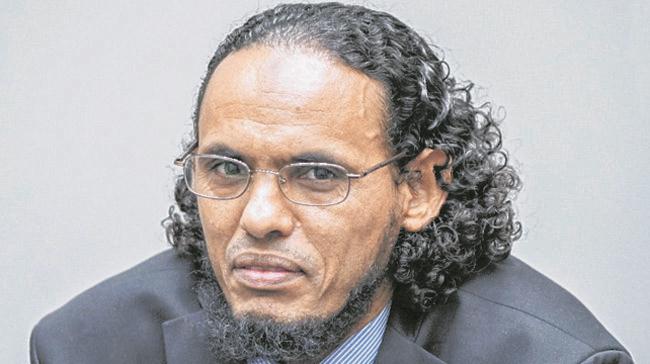-
Tips for becoming a good boxer - November 6, 2020
-
7 expert tips for making your hens night a memorable one - November 6, 2020
-
5 reasons to host your Christmas party on a cruise boat - November 6, 2020
-
What to do when you’re charged with a crime - November 6, 2020
-
Should you get one or multiple dogs? Here’s all you need to know - November 3, 2020
-
A Guide: How to Build Your Very Own Magic Mirror - February 14, 2019
-
Our Top Inspirational Baseball Stars - November 24, 2018
-
Five Tech Tools That Will Help You Turn Your Blog into a Business - November 24, 2018
-
How to Indulge on Vacation without Expanding Your Waist - November 9, 2018
-
5 Strategies for Businesses to Appeal to Today’s Increasingly Mobile-Crazed Customers - November 9, 2018
Islamist Pleads Guilty to Destroying Historic Muslim Shrines
A Malian jihadist made a decision to plead guilty, Monday, August 22, before the International Criminal Court in The Hague (ICC), the destruction of mausoleums classified as World Heritage of Humanity in Timbuktu.
Advertisement
Although Mahdi is suspected of committing other crimes, legal analysts said the case had been narrowly focused to highlight the growing awareness in global justice that cultural destruction is not only a war crime but also an intrinsic part of warfare aimed at destroying an opponent’s history and identity.
Mayombo Kassongo, who represents victims at the trial of Muslim radical Ahmad Al Faqi Al Mahdi, said they expressed “shame at seeing their saints stripped naked”, when Al Mahdi pick ax-wielding led rebels who reduced simple mud-brick mausoleums covering the saints’ tombs to piles of dusty rubble in June and July 2012.
Islamic extremists overran the historic city of Timbuktu in 2012 and appointed al-Mahdi, a Touareg teacher, to head their morality police.
Al Mahdi asked forgiveness on Monday and said he had been swept by Al Qaeda during the conflict.
“Our cultural heritage is not a luxury good – we must protect it from desecration and ravages”, Bensouda told the ICC.
She also pointed to other wanton destruction of historic and religious monuments, such as the demolition of parts of the ancient Syrian town of Palmyra by Islamic State and-just last month-the deadly attack on a Shiite shrine north of Baghdad.
Kassongo also said that the destruction of the World Heritage-listed sites wasn’t only a spiritual blow to residents, but also a financial one, as it crippled tourism in the remote city.
It also wants to “apologize to the people of Timbuktu and the people of Mali”, added the lawyer.
Ahmad al-Mahdi opened his trial telling the judges, “All the charges brought against me are accurate and correct”.
Revered as a centre of Islamic learning during its golden age in the 15th and 16th centuries and a designated Unesco world heritage site, Timbuktu was however condemned as idolatrous by the jihadists.
“The intention in nearly every case is to attack the dignity” of those who attach importance to the wrecked buildings or monuments, says Richard Goldstone, the first chief prosecutor at the International Criminal Tribunal for the Former Yugoslavia. Al-Mahdi spoke to the International Criminal Court through an interpreter, [saying, ] “I am really sorry, I am really remorseful and I regret all the damage my actions have caused”. Indeed, rather than indict Mahdi for other serious crimes he is suspected of committing, prosecutors narrowed their scope to focus exclusively on charges of cultural heritage destruction. “They were historic monuments that did not constitute military targets”.
Human rights activists have welcomed the case, but criticized prosecutors for failing to file more charges against Al Mahdi.
Mahdi added that he was “influenced by a group of deviant people from Al Qaeda and Ansar Dine”, an Islamist offshoot in Mali, and said that he hoped his punishment would “serve as a purging of the evil spirits I got involved with”.
“Culture is who we are”, she said. Under the terms of the plea agreement, prosecutors are recommending a sentence of nine to 11 years out of a possible 30, all while avoiding a potentially lengthy and expensive trial.
Advertisement
Worse, he says, such attacks “should be seen as a signal of serious persecution to follow”, since they are often “precursors to crimes against humanity such as ethnic cleansing”.





























